Introduction:
In a major move to reshape Punjab’s urban development landscape, Chief Minister Maryam Nawaz Sharif has introduced a far-reaching housing reform in 2025 aimed at regulating the mushrooming number of illegal private housing societies across the province. The initiative seeks not only to protect the rights of ordinary citizens but also to bring order, transparency, and long term planning into the real estate sector, which has for years operated with minimal oversight.
This bold reform comes at a time when thousands of unregulated housing schemes have surfaced, many of which have been found violating land-use regulations, lacking proper approvals, and deceiving unsuspecting buyers. Through the newly proposed system, Maryam Nawaz’s administration intends to regularize such societies, enforce compliance, and digitize the approval process to root out corruption and inefficiency.
The Scale of the Problem
Punjab’s housing crisis is not merely one of affordability or availability, it is deeply entwined with the operations of unapproved and often illegal private housing schemes. As per official figures shared in recent meetings chaired by the Chief Minister, Punjab currently hosts more than 7,900 private housing societies, of which a staggering 5,100 are either illegal or awaiting proper approvals.
The lack of a streamlined approval process in the past, coupled with administrative negligence and alleged collusion between developers and officials, has led to rapid urban sprawl, unplanned constructions, and in some cases, fraud committed against homebuyers. Many citizens, lured by the promise of affordable plots, have invested their life savings into societies that either don’t exist on the ground or are entangled in legal disputes.
Introducing the Housing Society Management System
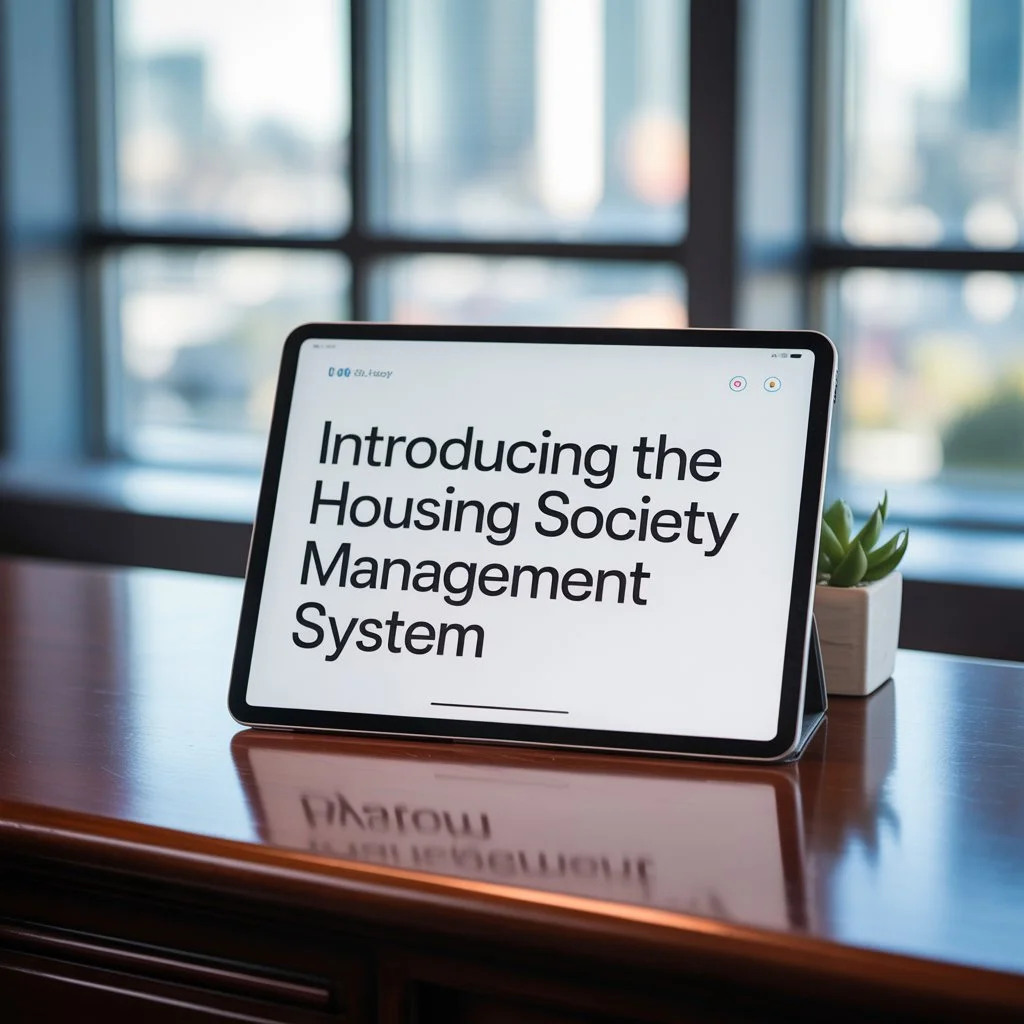
To address this widespread issue, Maryam Nawaz Sharif has launched a digital Housing Society Management System, a first of its kind initiative in Pakistan aimed at automating and monitoring every stage of a housing society’s lifecycle. This system will serve as a centralized digital portal for:
- Online submission and tracking of NOC applications
- Digital payments for approvals and registration
- Monitoring of post-approval developments
- Public access to society status (legal or illegal)
- Reporting violations or construction without permits
This reform is not just about technology; it’s a significant step towards transparency. With digitization, manual manipulation of files and under the table approvals will become significantly more difficult.
Amnesty for Illegal Societies: A Balanced Approach
Recognizing that many illegal societies already house thousands of residents, Maryam Nawaz’s government has proposed a one-time amnesty plan. This measure allows such societies to regularize themselves by fulfilling legal requirements under a clearly defined framework.
A special oversight committee has been established to examine these cases individually. Societies that can demonstrate their commitment to following planning standards, infrastructure development, and payment of applicable dues will be allowed to continue operations legally. However, those found to have gross violations or fraud will face penalties and, in extreme cases, demolition.
This approach seeks to strike a balance between justice for buyers and accountability for developers.
Formation of the Punjab Special Planning Authority (PSPA)
One of the most important structural reforms introduced under the 2025 Housing Reform Plan is the establishment of the Punjab Special Planning Authority (PSPA). This authority is tasked with ensuring that land use planning, zoning, and society approvals are carried out in accordance with legal, environmental, and developmental standards.
The PSPA will function as a provincial level body and will coordinate with district level Special Planning Committees, each chaired by the Deputy Commissioner. These committees will review new proposals, inspect ongoing developments, and address public complaints regarding housing schemes.
By decentralizing authority and enforcing checks at both the district and provincial levels. The PSPA aims to curb unregulated growth and ensure uniformity in housing standards.
A Personal Touch: CM’s Response to Safety Hazards
In September 2024, a tragic incident on Raiwind Road brought housing society safety into the public eye. A young girl lost her life after falling into an open manhole inside a private housing society. Maryam Nawaz personally intervened, ordering immediate inspections of safety hazards in all private societies and strict penalties for negligence.
This incident underscored the importance of post-development monitoring, which has now become a core feature of the new housing policy. Therefore, societies will not only need to obtain approval but also maintain essential infrastructure and adhere to safety norms or risk being sealed or fined.
Uniformity and Aesthetic Planning
Another key feature of the reform is the introduction of standardized design frameworks for new societies. All future developments must now comply with planning regulations concerning:
- Road widths
- Sewerage and drainage systems
- Availability of public parks, schools, and commercial zones
- Street lighting and green belts
- Walking-friendly infrastructure
This move is intended to prevent the haphazard layouts that have characterized many older developments. The focus is on building inclusive, sustainable, and livable communities rather than just selling plots.
Role of LDA and Other Agencies
The Lahore Development Authority (LDA), which governs real estate development in the provincial capital, is also under scrutiny. Out of 707 private societies in LDA’s jurisdiction, only 427 are approved, with the remainder either illegal or under process.
Under Maryam Nawaz’s directive, LDA and similar bodies in other cities are being brought under tighter oversight. Their performance will now be evaluated regularly, and any officer found colluding with illegal developers will be held accountable.
Public Awareness and Citizen Empowerment
Perhaps the most transformative element of the housing reform is its citizen-centric orientation. By making society approval statuses publicly available online, potential buyers can now verify before they invest. This is expected to significantly reduce the chances of fraud and misrepresentation.
Moreover, Public awareness campaigns are also being launched to to ensure that citizens about their rights, as well as the risks of investing in illegal societies. In addition, how to use the online system to file complaints or verify project legality.
Conclusion: A Blueprint for Reform
Maryam Nawaz Housing Reform 2025 represents a comprehensive, multi-layered effort to tackle one of Punjab’s most pressing governance issues. By combining technology, transparency, legal reform, and administrative accountability, her government has laid the groundwork for a real estate sector that prioritizes citizens over profiteers.
The success of this initiative will depend on sustained implementation, political will, and continued engagement with stakeholders. Ultimately, If executed as planned it could become a model for housing sector reform not only across Pakistan but also in other developing countries that are likewise grappling with similar urban challenges.
Want to know more? Check out Illegal Housing Societies in Islamabad 2025 – CDA Crackdown Explained
Like, share and comment: Facebook, Instagram, Youtube and Tiktok

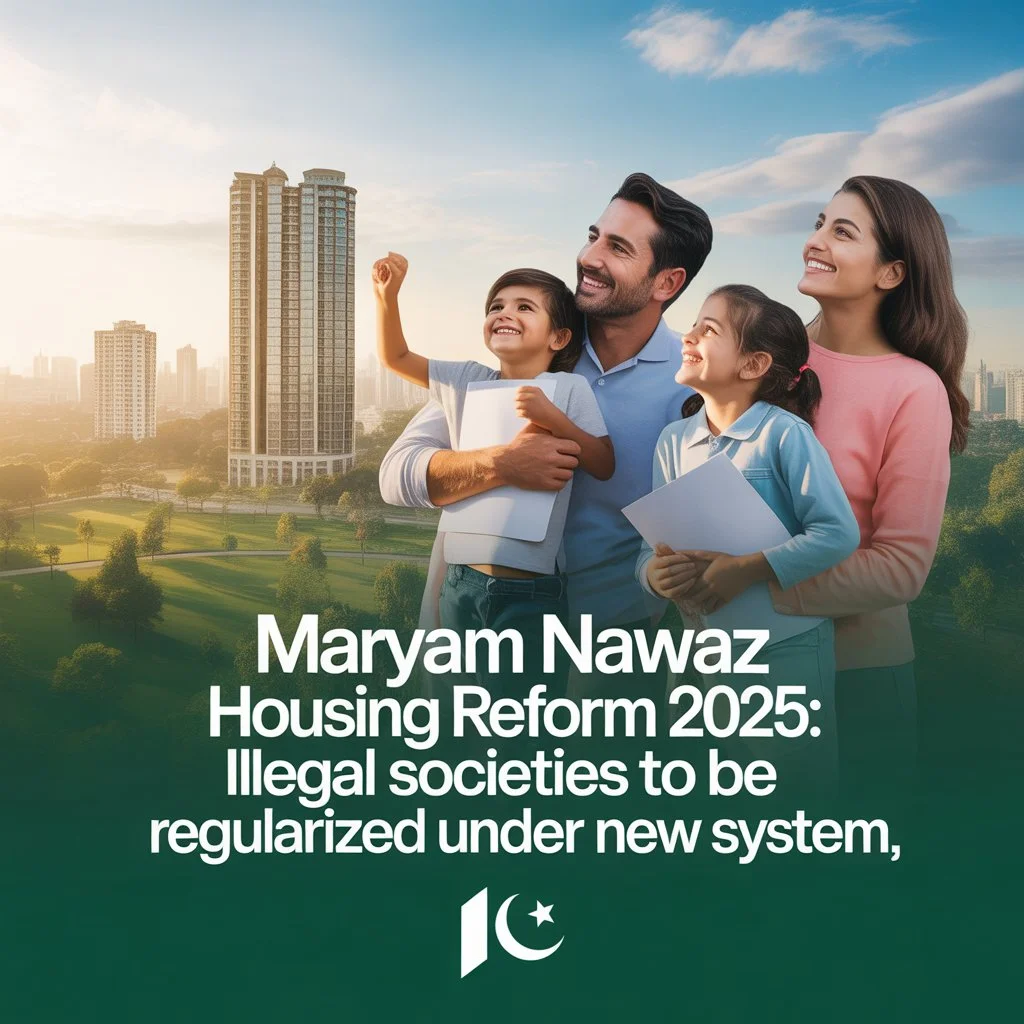
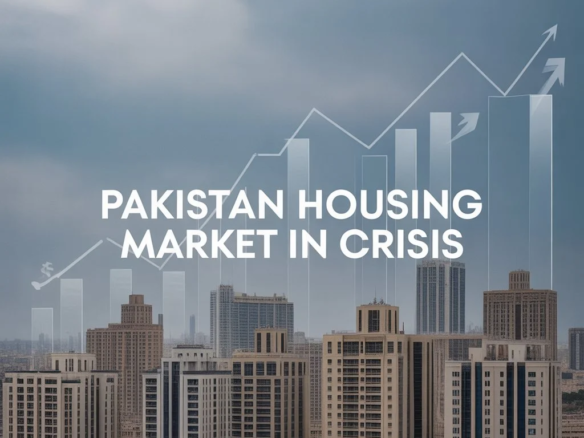
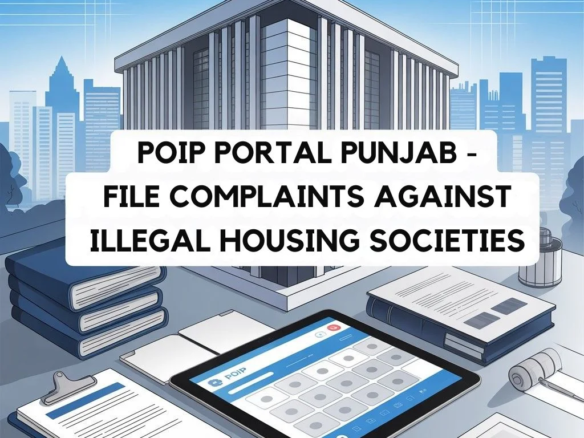
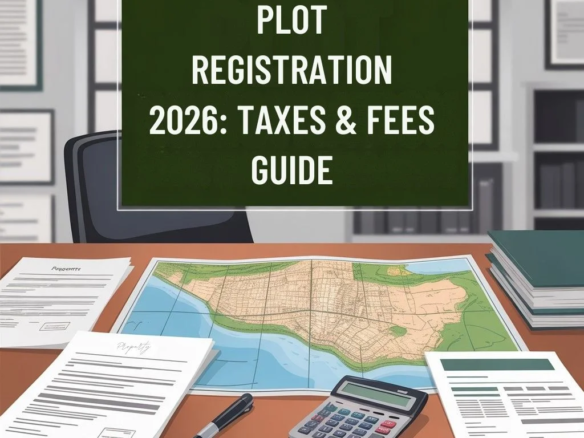
Join The Discussion